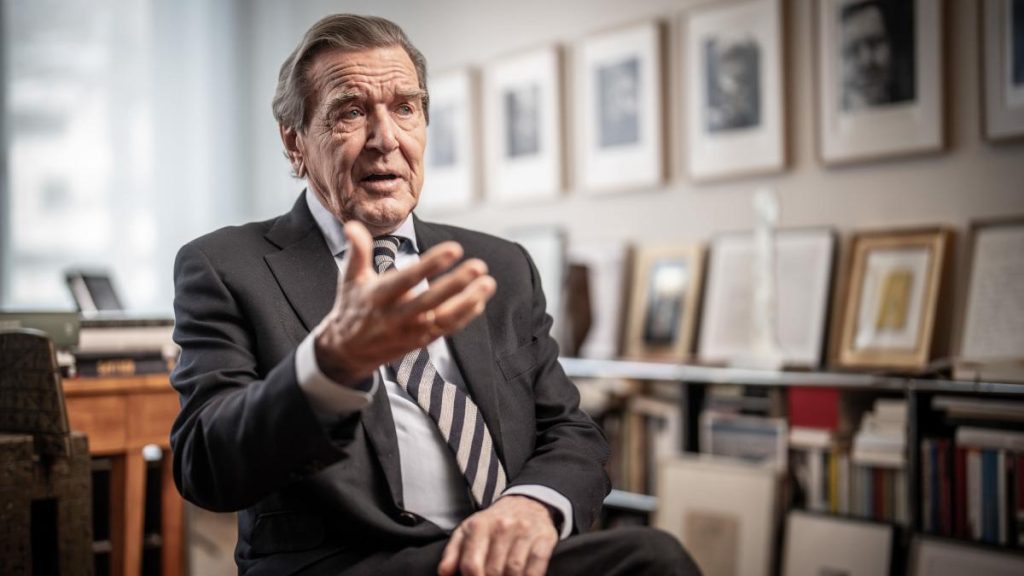Former German Chancellor Gerhard Schröder expressed hope that his friendship with Russian President Vladimir Putin could still be helpful in resolving the Ukraine conflict. Schröder, who has been friends with Putin since his time in office from 1998 to 2005, is also involved in the Nord Stream pipelines project. Despite calling Russia’s attack on Ukraine a “fatal mistake,” Schröder has not distanced himself from Putin. The SPD leadership has distanced themselves from Schröder, but a party expulsion procedure against him failed.
In an interview, Schröder mentioned that they have worked together sensibly for many years and believes that their relationship could still assist in finding a negotiated solution to the conflict in Ukraine. When questioned about why he continues to maintain the friendship with Putin despite the thousands of deaths and war crimes committed in the Ukraine conflict, Schröder emphasized that their personal relationship could potentially help in addressing a difficult political problem. He expressed that it would be wrong to forget all the positive events that have occurred between them in the past. Schröder referred to his mediation efforts in March 2022 shortly after the Russian attack on Ukraine. Although these efforts were unsuccessful, he now advocates for a new government-level mediation attempt, suggesting that France and Germany take the lead in initiating this process.
Schröder dismissed speculations that Putin may initiate a nuclear war or attack a NATO country on the eastern flank as nonsense. He emphasized the need to prevent escalation towards such scenarios and avoid further unrest among the population. He emphasized the importance of seriously considering a resolution to the conflict in addition to supporting Ukraine. Schröder believes that the war cannot end in complete defeat for either side. He highlighted the role that France and Germany could play in mediating and finding a peaceful solution to the conflict. Schröder has faced criticism for his close ties to Putin and his involvement in Russian business projects, but he remains committed to utilizing his relationship with Putin for diplomatic purposes.
Schröder’s comments come at a time when tensions between Russia and the West are high due to the ongoing conflict in Ukraine. As a former influential figure in German politics, his perspective on the situation and proposal for mediation carry weight. While some may question his loyalty to Putin given the gravity of the situation in Ukraine, Schröder stands by his belief that their friendship could potentially contribute to resolving the conflict through negotiations. The international community will be closely watching how Germany and France respond to Schröder’s suggestion for a new mediation effort and whether it could lead to progress in easing tensions in the region.
Overall, Schröder’s stance reflects the complexity of diplomatic relationships and the challenges of balancing personal bonds with political realities. His continued faith in the potential of his friendship with Putin to influence diplomatic outcomes illustrates the nuanced dynamics at play in international relations. As the conflict in Ukraine continues to unfold, the involvement of key figures like Schröder in seeking diplomatic solutions could play a pivotal role in shaping the future trajectory of the region. Ultimately, the success of any mediation efforts will depend on the willingness of all parties involved to engage in constructive dialogue and find common ground towards a peaceful resolution.


